What’s the catch: Can we really tackle industrial fishing?
Is a trusty label enough when we want to buy ethically sourced fish? Lizzie Rivera finds it is time to both change our eating habits and the way we fish
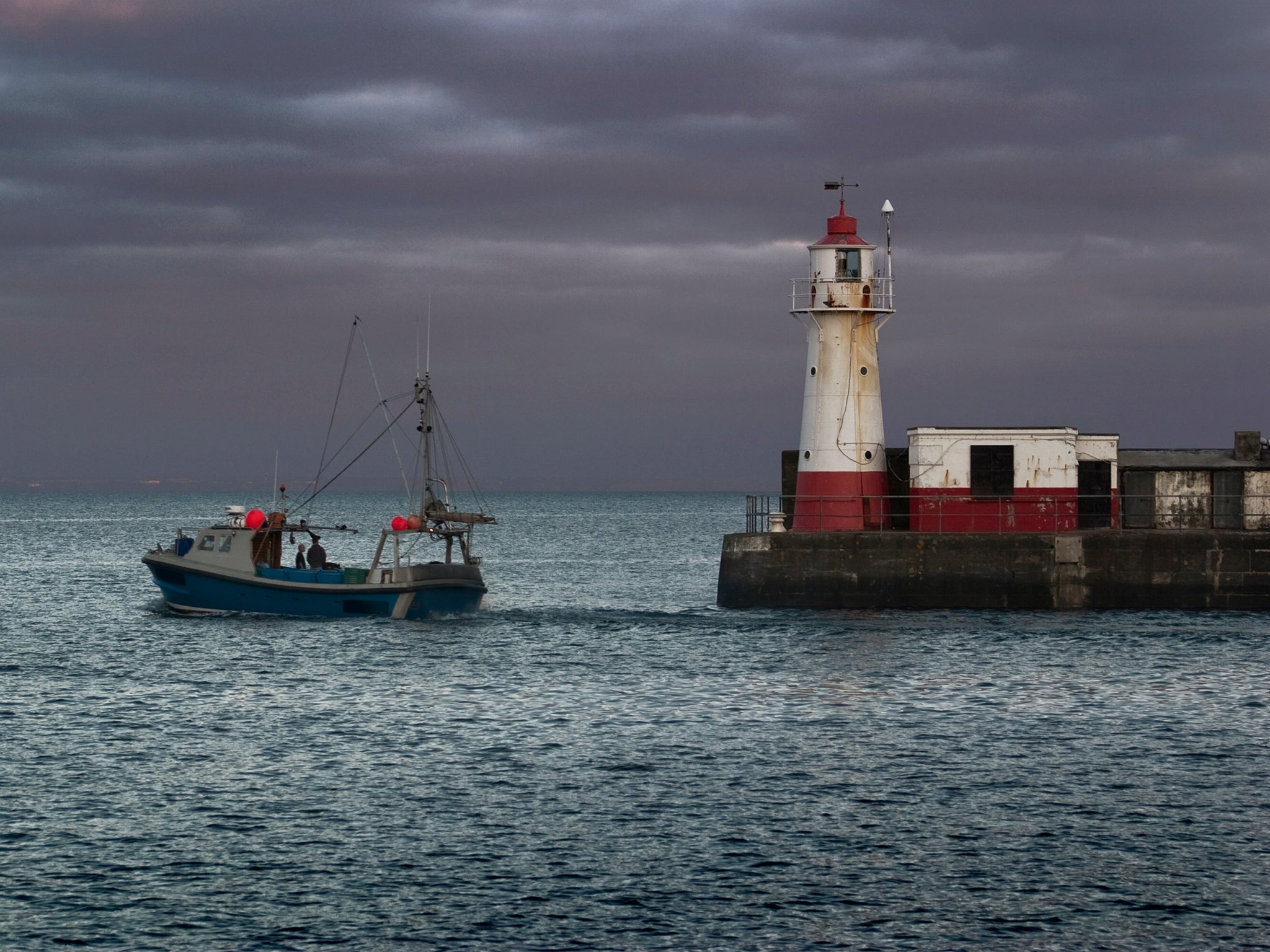
With the cooler weather comes the joy of eating shellfish caught off the British coast at its best – especially mussels, oysters and crab.
Now is also a good time to enjoy the last of the really good founder, plaice and dover sole. They get thinner as we head into winter because they are currently spawning, which uses up a lot of energy, but will be fatter again in spring.
Fisherman usually expect to be landing cod from Kent by now, but the sea is warmer than it normally is at this time of year so it’s assumed they’re still further up the coast. We are still waiting for an abundance of cuttlefish to appear in Cornwall, for the same reason.
There’s still plenty of fish to be caught by the dayboats, just not the species we are mostly familiar with.
Like many of the best seafood restaurants, the fish Weeden serves up at London’s only organic pub, The Duke of Cambridge, is highly seasonal and even weather-dependent.
His supplier, Cornwall-based Kernowsashimi, uses dayboats to catch the fish. This means Weeden can guess at what’s going to be landed depending on the weather reports texted to him by the fishermen each morning, or by tracking their boats using marine technology, but he won’t know for sure what’s going on his menus until the catch is in.
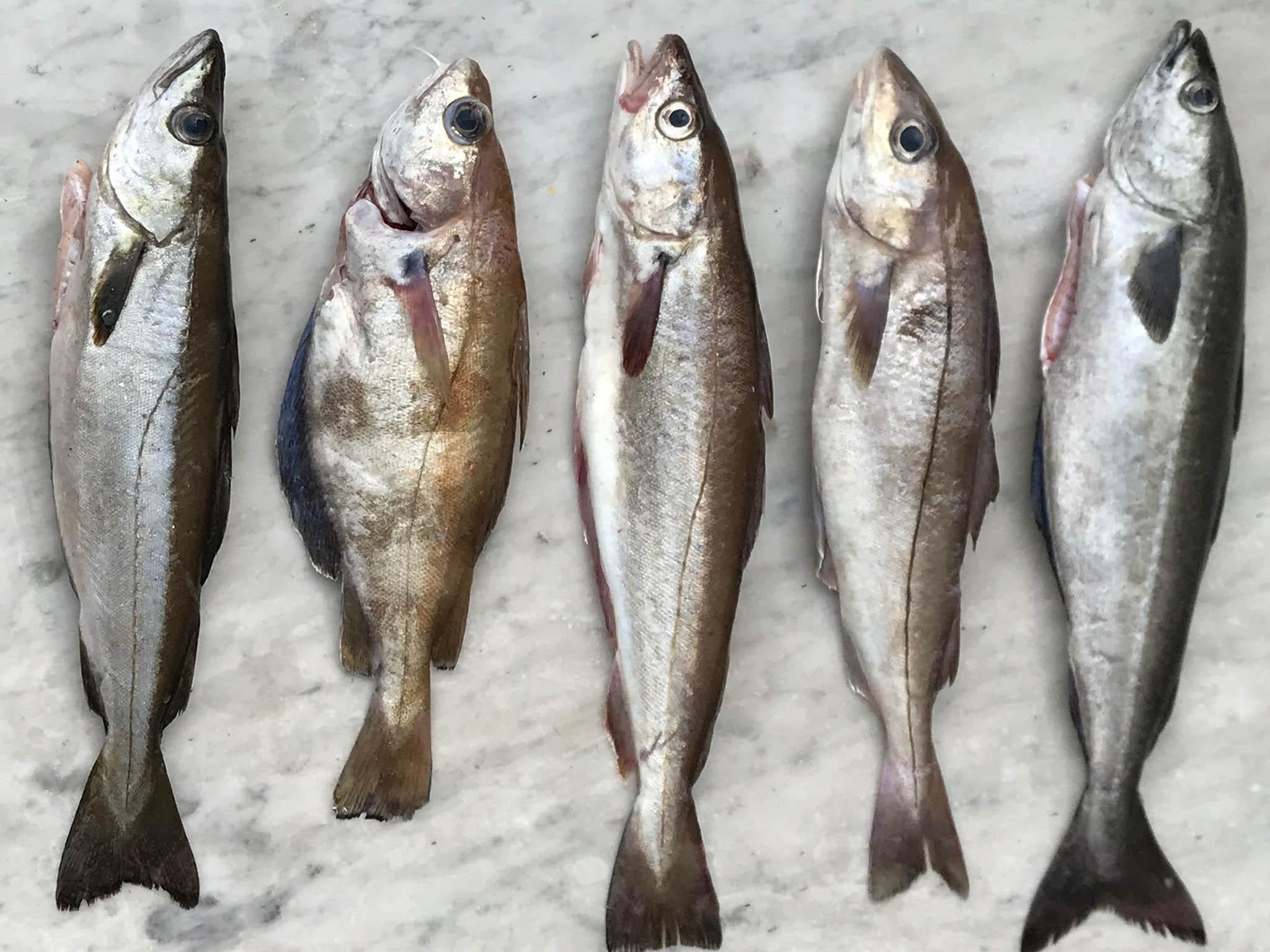
Weeden relies on his customers being flexible and open to trying new things, which can be part of the joy of dining out.
The Marine Conservation Society reports that around 150 different species of fish are caught off the UK coast, but most people in Britain only eat about five different types fish.
It’s no secret that this is a huge problem for the most popular species – cod, haddock, tuna, salmon and prawns.
Eat now: British fish that fare well in colder water
Mussels
Oysters
Crab
Squid
Pollock (a good cod alternative)
Cod (if caught sustainably)
Ray (similar to skate)
Huss (a meaty white fish from the shark family – great for stew, fish curry and tacos)
It’s a crusade sustainable chefs are tackling head-on. You made have noticed salmon or prawns missing from menus, or an increase of names you’re not so familiar with.
“I’m not pretending the answer is simple but we have to step back and ask how we can use more species,” says head chef Peter Weeden. “Sustainability-wise, taking a bit of everything is the lowest-risk scenario for me.”
But consumers generally have less opportunity to buy seasonally when cooking at home.
“The retail side of things is still very opaque, despite consumers wanting to know these things,” says Caroline Bennett. She’s the owner of the UK’s first Japanese-style sushi-restaurant, Moshi Moshi, and founder of food-box scheme, Sole of Discretion, which she set up last year out of “exasperation” that truly sustainable options were not available to the consumer.
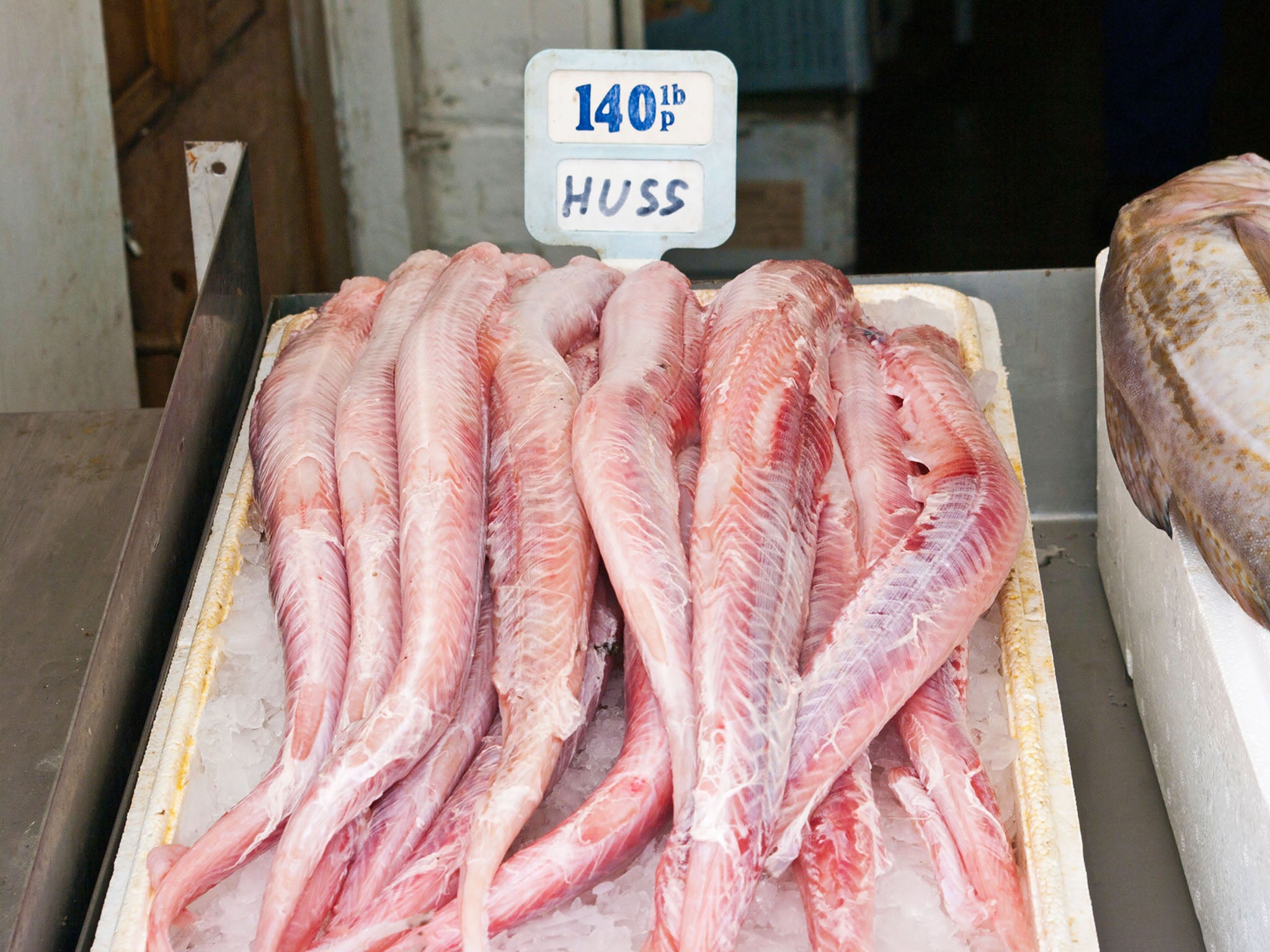
The fish is also sold through selected farm shops and online farmers market, Farmdrop.com.
Ever passionate about ethical fishing, she says: “You’ve got line-caught at one end and dynamite fishing at the other. But 99 per cent of fisheries are in the grey area in the middle, and it’s exactly there the consumer wants help – and the industry isn’t up for it.”
Supermarkets have responded to consumer demand for more transparency using the Marine Stewardship Council’s “MSC Certified” logo. This tracks fish stocks and identifies “responsibly sourced” seafood.
But what does this really mean?
“It’s probably a little like [the] Red Tractor [logo] in farming, it’s essentially the lowest common denominator,” says Moshi Moshi’s Bennett.
These labels do not provide the buyer with the essential tracking information required to guarantee sustainability – how was the fish caught, where, and by who.
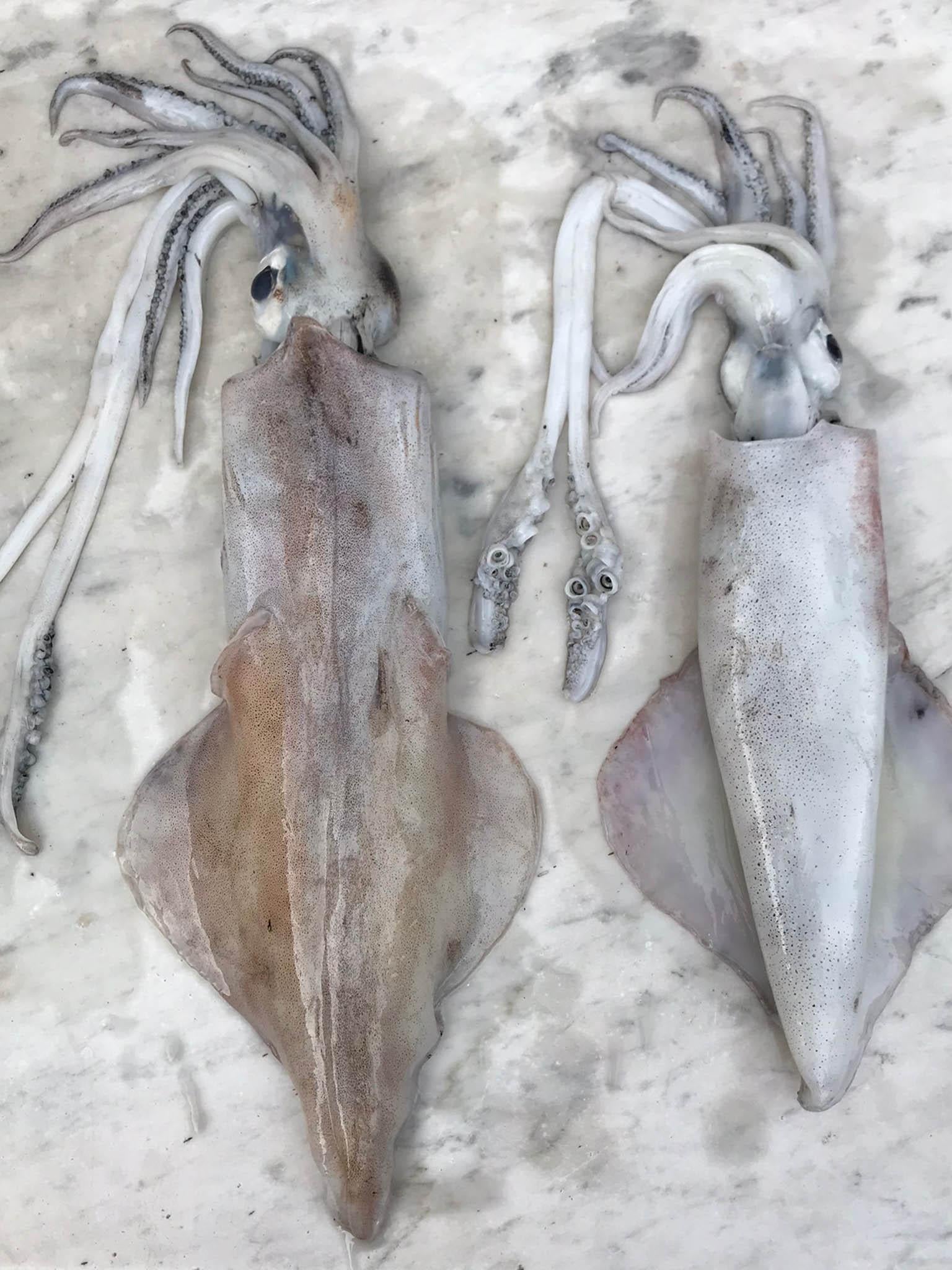
What’s more important the species or the catch?
“The health of our oceans is under threat and they’re changing at a faster rate than ever before in human history,” said David Attenborough, setting the theme for the highly anticipated first episode of Blue Planet 2.
Watching the walrus struggling to protect her cub on the melting ice floating off Norway hammered the point home.
But it’s not just global-warming that’s affecting sea life, industrial fishing is having a devastating impact.
A mammoth 93 million tonnes of fish was taken from the ocean in 2015, according to the latest report from the United Nations Food and Agriculture Organisation.
Great British fish to enjoy throughout the year
The fish towards the bottom of the food chain that are currently more plentiful and not endangered:
Herring
Anchovy
Sardines
Mackerel
As a result, the Marine Conservation Society (MCS) estimates 90 per cent of the world’s fish stocks are deemed to be either fully or overexploited.
Line-caught fish, those captured in size-specific static nets, or by lobster and crab pots are generally the most sustainable. Everything that is caught can be used so waste is minimal.
These methods also intentionally minimise the risk of catching the fish that offer the best chance of reproducing, by avoiding the biggest and smallest of each species.
Bennett insists all her fish are caught this way and therefore sells off her catch through Sole of Discretion, even if they’re deemed endangered and therefore red-listed by the MSC and MCS.
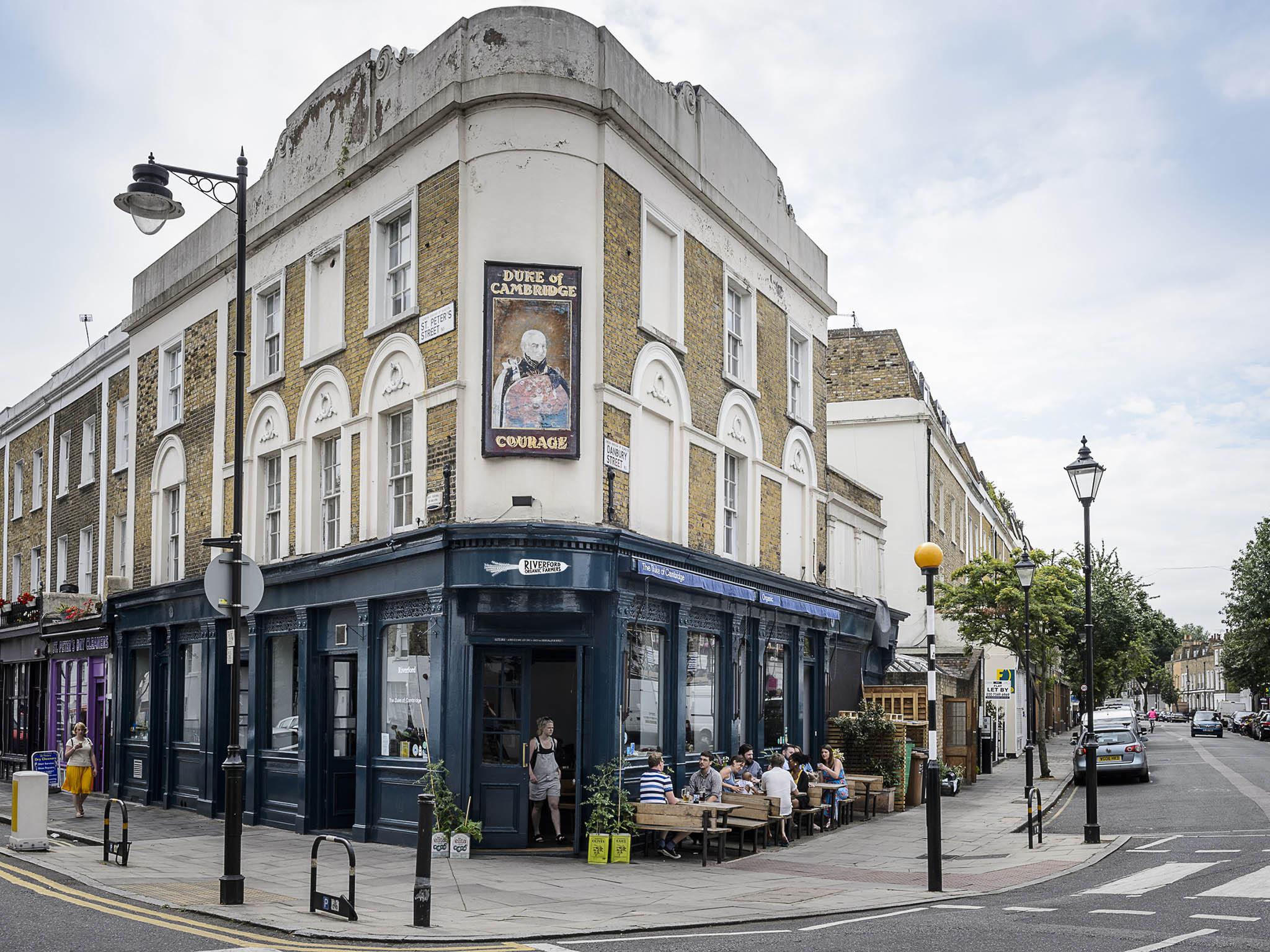
“For us the method of catch and the area it’s caught in is far more important than the species being caught,” says Bennett. “We’re looking at the entire eco-system, while the MSC and MCS are stock-specific.”
It’s a difficult message to convey, so the ethical seafood campaigner is working with the marine biology department at Exeter University to create a universal Soil Association certification – but that’s a couple of years off yet.
More clear-cut fishing methods to avoid are trawling, because it essentially digs up the sea bed destroying fragile ecosystems, and electrofishing, which shocks the fish to make them easier to catch.
“It’s a scandal that it’s even allowed. The full effects are not scientifically proven at all,” says Theresa Douthwright who founded Soleshare, a London-based fish box scheme that’s been building its consumer base for the past couple of years.
Members sign-up for a weekly or fortnightly fish box and don’t know what they are going to receive until they are sent a text on the day of delivery, which gives recipients enough time to look up recipes for their catch of the day.
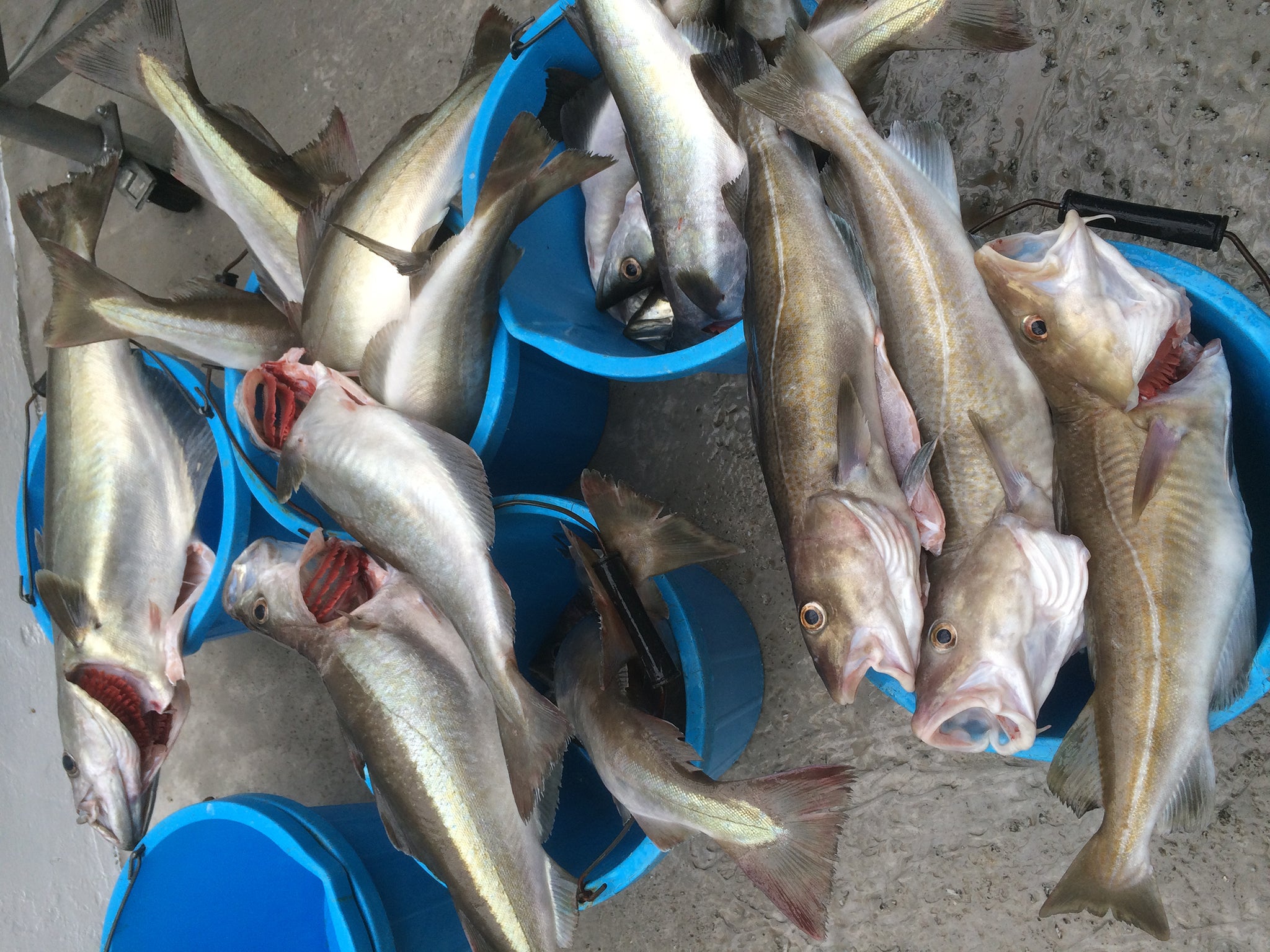
It not only turns cooking into a mini-adventure, but also provides individual fisherman with a stable income.
“It makes a pretty big difference to their lives because we pay good prices for the fish. It means at the beginning of each month I have a clear idea of how much fish I’m going to be buying and so do the fisherman,” says Douthwright, an aquatic ecologist by training.
Of course, buying fish from the UK has the smallest carbon footprint. It also guarantees there are no other welfare issues in the supply chain.
“I know people in Ecuador who have literally had their colleagues murdered over prawns because they’ve opposed big foreign companies taking over from small-scale landowners,” says Bennett. “Then there’s the links to Burmese and Thai slavery.”
Atlantic wild prawn is probably one of the best wild prawns you can buy, but the huge compromise is that it’s also one of the most environmentally damaging fishing systems because the prawns are so small a lot other marine life gets caught in the catch – resulting in massive discards.
This is why it’s important to know not just where, but also who is catching the fish if you want to ensure a genuinely responsible supply chain.
A good fishmongers should be able to offer this information to you, a good fish box scheme definitely will.
Lizzie Rivera is the founder of ethical lifestyle website bicbim.co.uk, they are currently crowdfunding
Join our commenting forum
Join thought-provoking conversations, follow other Independent readers and see their replies
Comments
Bookmark popover
Removed from bookmarks